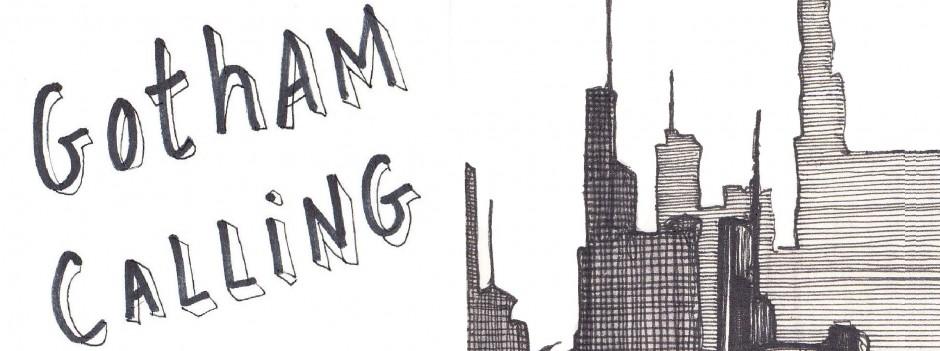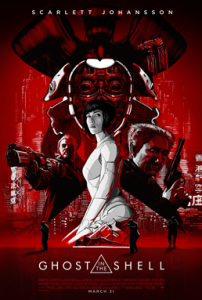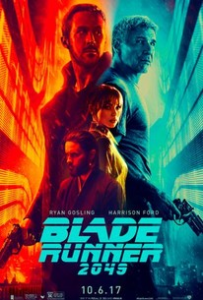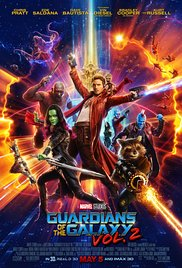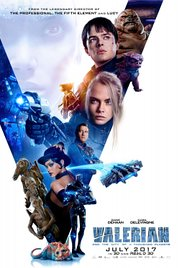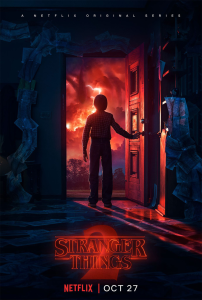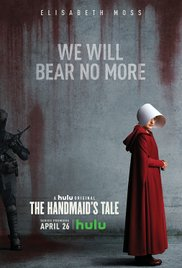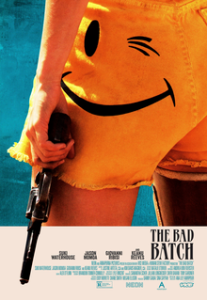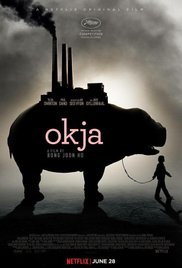The Last Jedi hits the screens this week and we’ll see what comes out of it. So far, Rian Johnson is OK in my book. He did Brick, so I know he’s into film noir. He did The Brothers Bloom, so he’s into zany comedy. And he did Looper, so he’s into schlocky sci-fi action. When you bring all these together, what do you get? Well, technically, you get Trancers… but hopefully you can also get a kick-ass Star Wars movie!
I am cautious, though. In 2017, most major sci-fi adventure franchises got new installments and, while all of them were visually stunning, story-wise we got some very mixed results.
Carrying on a tradition that stretches at least as far back as Isaac Asimov’s I, Robot collection, androids continued to be efficient metaphors for class, race, slavery, the automation of labor, and the free will vs predetermination debate. Case in point: Michael Fassbender’s characterization was pretty much the only engaging thing about the otherwise forgettable Alien: Covenant, a picture that mostly – and clumsily – rehashed old tricks, crushed by the law of diminishing returns…
In turn, Denis Villeneuve’s Blade Runner 2049 surprisingly proved to be quite a worthy sequel to Ridley Scott’s heady, beautifully noirish original, despite a few plot contrivances and a glacial pace (if anything, that only helps bring the two films closer together!). Sure, Blade Runner seemed like a self-contained work with little to gain from a follow-up. Then again, fans have always had a blast comparing various versions of the story – from Philip K. Dick’s mind-bending novel Do Androids Dream of Electric Sheep? to the uneven comic book adaptation by Archie Goodwin, Al Williamson, and Carlos Garzon, not to mention the multiple cuts of the movie – so now we have one more toy to play with! Between a programmer literally designing recollections, a post-apocalyptic Vegas with fuzzy hologram projections of old stars, and the film’s own echoes of its predecessor, 2049 expanded questions surrounding memory and identity: Can fake memories produce a real identity? Can real memories produce a fake identity? What is memory? What is identity? What is real? And do our memories of the first picture provide or deprive the sequel of its own identity?
Covering much of the same ground, Rupert Sander’s live-action remake of Ghost in the Shell dumbed down the plot of Mamoru Oshii’s cyberpunk anime classic, disregarding that film’s most intriguing ideas (can an artificial intelligence request political asylum?) while making its themes of technology redefining the concept of ‘human’ even more explicit. The casting of Scarlett Johansson was charged with whitewashing, although the choice does work in terms of futuristic extrapolation: if manga characters are often designed with a ‘western’ physiognomy, is it too much of a stretch to assume the same could apply to Japanese cyborgs? (In fact, the suggestion of highly globalized, post-national cities that blend cultural, linguistic, and ethnic divides is just one more concept the movie borrows from Blade Runner.)
There were less techno-centric visions of the future as well. In particular, I had high hopes for the final chapter of the new Planet of the Apes trilogy. Instead of further developing Dawn’s thoughtful take on security dilemmas and power politics, though, Matt Reeves’ War for the Planet of the Apes gave us a clichéd, contrived collage of scenes from westerns and war movies, only with apes in them. This future doesn’t appear to have grown from our present era (no women in the military?) – it grew directly from classic cinema about WWI, WWII, and Vietnam. The result feels like a waste of technical wizardry and eerie potential: even with armed chimps and gorillas, the battle scenes never manage to be as creative or impressive as the ones in Game of Thrones…
By contrast, James Gunn’s Guardians of the Galaxy Vol. 2 kept up the first volume’s weird mix of exhilarating space opera and Futurama-like humor. Building up on the earlier character work, the film used the various members of the ensemble cast to drive home the point that family doesn’t have to be something you inherit, but rather the people you choose to be with. This amped up sequel even gets away with all kinds of stuff that shouldn’t work but somehow does – like Rocket Racoon consciously setting up a killer soundtrack (Baby Driver style), the countless pop culture references and cameos riding the ‘80s nostalgia wave, or the alien riff on North by Northwest that I hadn’t realized I needed until I saw it.
And speaking of intergalactic sagas: regardless of some mean reviews, Valerian and the City of a Thousand Planets compellingly reworked Pierre Christin’s and Jean-Claude Mézières’ psychedelic comics (especially Ambassador of the Shadows), downplaying the source material’s Cold War anxieties and pushing to the forefront more topical concerns about historical memory and reparations. Say what you will about the lackluster leads, but each minute of Luc Besson’s dazzling 3D extravaganza contained more inventive concepts and visuals than all of the recent Star Wars movies combined!
Still, if you want insightful, politically charged sci-fi, I suppose you’ll be happier with less spectacle-driven productions. Michael Almereyda‘s adaptation of the play Marjorie Prime is probably 2017’s most touching slice of low-key speculative fiction about the evolution of everyday technology, at least until the release of the next batch of Black Mirror episodes (in two weeks!). While Jordan Peele’s Get Out may verge closer to horror, its loose use of weird science as an allegorical/satirical device feels reminiscent of old EC comics, albeit with a focus on contemporary race relations (especially the question of cultural appropriation). And if Get Out served as a perfect bookend to the Obama presidency, The Handmaid’s Tale recontextualized Margaret Atwood’s awesome novel from three decades ago as an intense series about some of the grimmest tendencies of the Trump era (and it felt even more relevant in light of the post-Weinstein wave of revelations).
On the more escapist end of audiovisual serialized fiction, the second season of Stranger Things once again delivered a thrilling adventure – with a heart – in the form of a pastiche of eighties’ sci-fi/horror. That said, I still wish the show would try harder to be as wild and imaginative as its sources of inspiration (you’ll have more fun watching the original A Nightmare on Elm Street or Prince of Darkness). The same thing cannot be said for the brilliant cartoon series Rick and Morty. This absurdist sitcom about the frantic interdimensional exploits of an alcoholic mad scientist and his impressionable grandson remains packed to the max with geeky riffs and off-color gags. If anything, this year’s season was even more hilariously anarchic!
Longtime readers know I have a soft spot for tasteless, trashy entertainment of the bonkers variety. Set in a dystopic wasteland where the US dumps its undesirables – themselves divided between cannibal families and a hippie gated community – Ana Lily Amirpour’s The Bad Batch is a trippy black comedy with a slow-burn spaghetti western vibe that keeps zigging when you expect it to zag. (It’s basically everything that Escape from L.A. should have been.) In Tommy Wirkola’s twisted thriller What Happened to Monday, Noomi Rapace plays seven different sisters fighting for their lives in an overpopulated Europe with a strict one-child policy. As for the oddball eco-parable Okja (about giant transgenic animals), its satire is pretty on-the-nose and the tonal shifts can be jarring – but hey, when it comes to director Bong Joon-Ho, that’s not a bug, it’s a feature!
(I didn’t delve into literature on this post, as my genre readings aren’t as up-to-date… Nevertheless, I am aware that in recent years sci-fi novels have continued to push the boundaries on issues such as our relationship with gender and climate change, including plenty of promising works for my bottomless to-read pile.)
Overall, apart from the noticeable trend of drawing on the past to imagine the future, most of these films and shows used science fiction as a vehicle to explore notions of social control, political resistance, and armed conflict. Those are all topics we can find in comic books, old and new. In a couple of weeks, I’ll zoom in on a few comic series that addressed the same themes in particularly cool ways!
